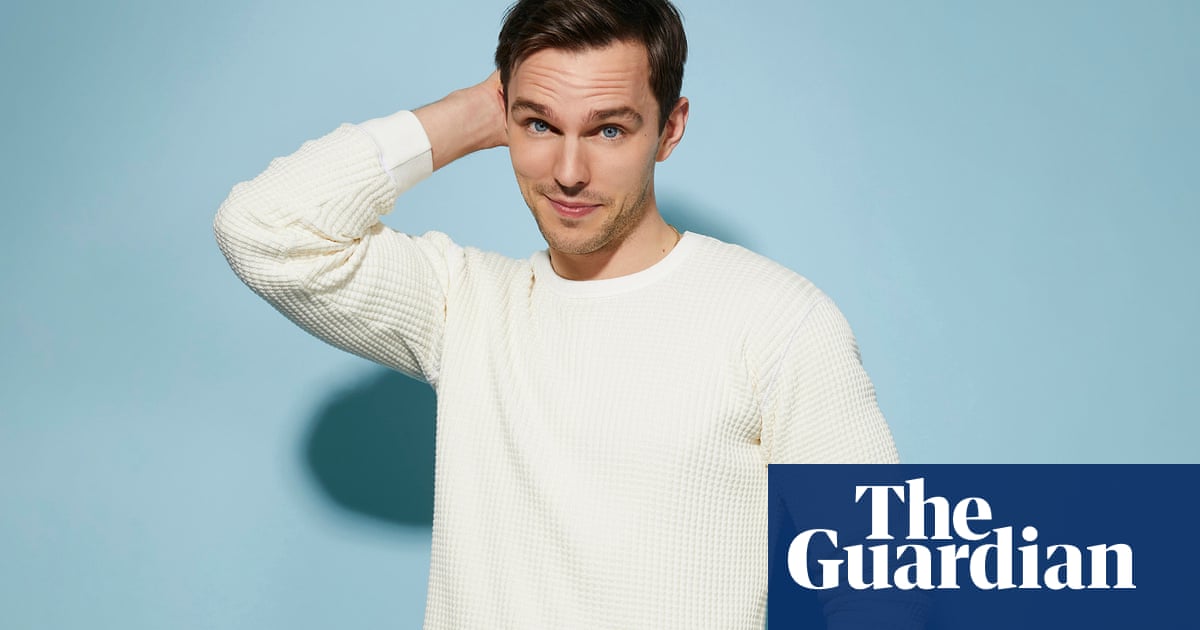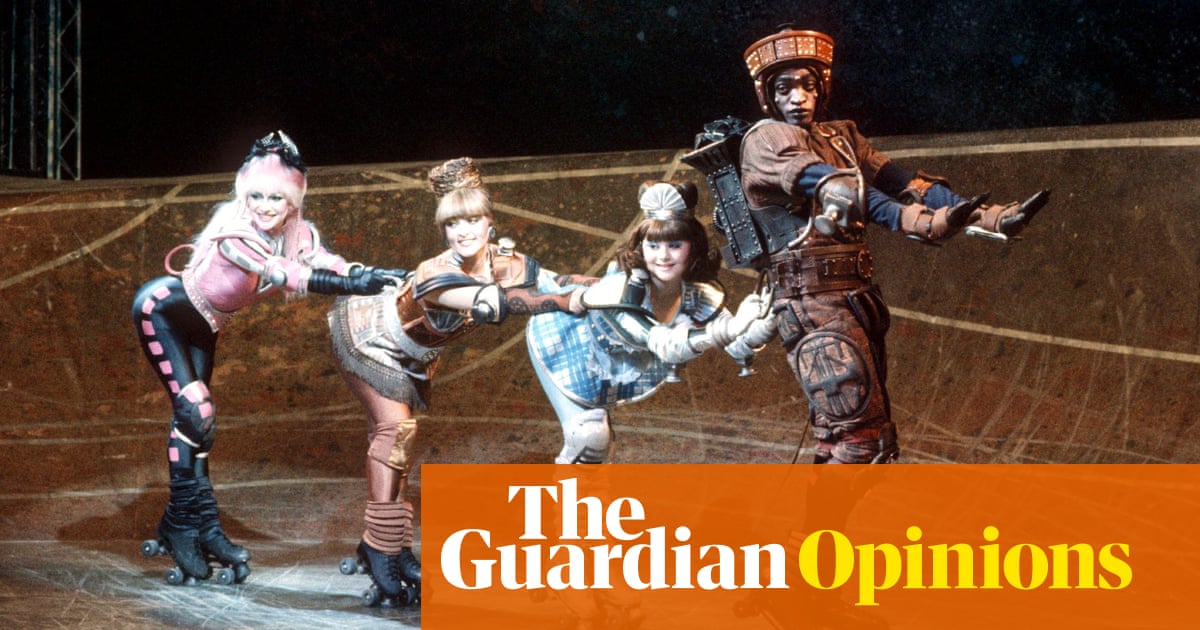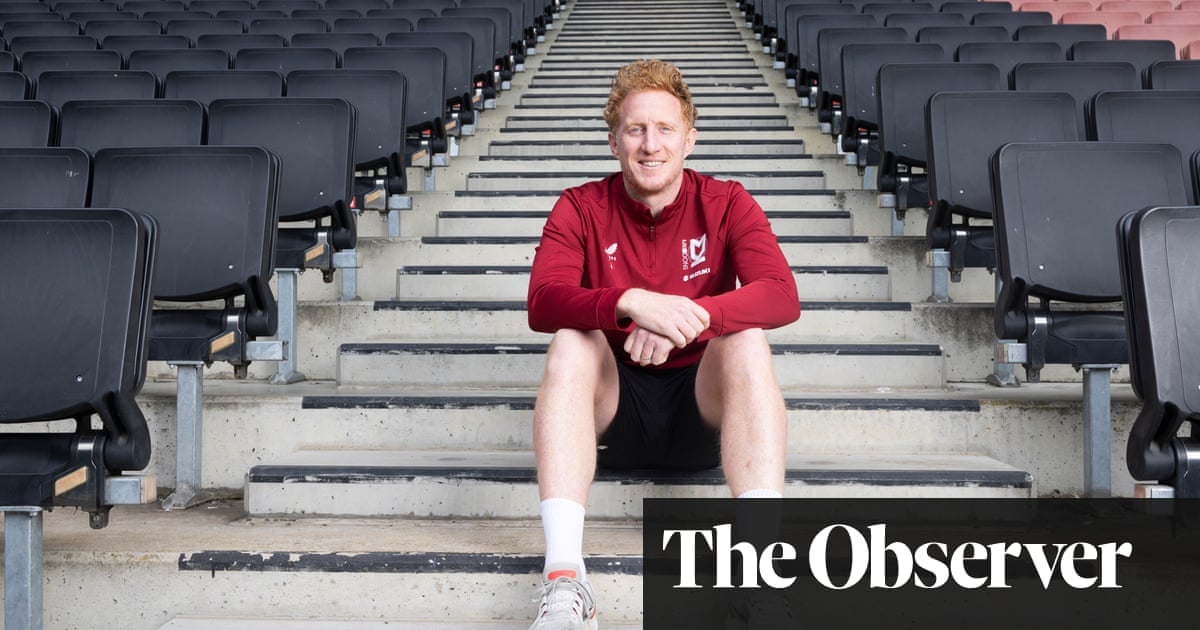
enry Lloyd-Hughes’s Twitter bio states that he is “the most famous actor you’ve never heard of”. It is a line that appeared in a magazine profile of him last year. There is another profile, from five years earlier, that says roughly the same thing. He is a fantastic actor with a near flawless CV; if only he could somehow land that career-defining role that would push him over the top.
“It’s remarkable,” laughs Lloyd-Hughes, 35. “The false dawns I’ve had. I’m like the Teflon Don. You can put success near me, you can put me in the biggest-grossing British sitcom of all time, but it doesn’t touch me. It just runs off me. Fame can come this close to me and yet it leaves no trace. I’m immune to success.”
He certainly doesn’t behave much like a celebrity. In a world where the video-call interview has been finessed into something approaching high art, he bumbles into ours a couple of minutes late, plonking himself in a shed strewn with cricket paraphernalia, on what appears to be his mum’s account. “Perfect,” he mutters to himself as his chat window announces him as “Lucy”. “Every time …”
I don’t wish to add to the growing collection of articles promising that Lloyd-Hughes will be the next big thing, but he is about to unveil his most storied character yet. Because, in the Netflix series The Irregulars, he plays Sherlock Holmes. While Holmes fatigue is real – the Guinness World Records lists him as the most portrayed literary human character in film and television history, played in the past 15 years alone by Benedict Cumberbatch, Robert Downey Jr, Will Ferrell, Henry Cavill, Ian McKellen, Ewen Bremner, Jonny Lee Miller and Johnny Depp – this is not a take on the character you will have seen before.
The Irregulars is written by Tom Bidwell, perhaps best known for his adaptation of My Mad Fat Diary, and is based on the Baker Street Irregulars, the team of urchins who appeared in three of Conan Doyle’s stories as Holmes’ street-level intelligence agents. This is a bold reimagining of them, led by an amazing young cast. Without giving too much away, The Irregulars is a much more supernatural affair than you might expect. “It’s Skins meets The X-Files,” says Lloyd-Hughes.
And gory, too, I say. “Yeah, I know,” he nods. “When I started watching it, I got quite excited and I started texting my mates. I was like: ‘Oh, who’s got a 14-year-old kid?’ Blah, blah, blah. And then, as it got more and more violent, I was like: ‘Actually, who’s got a 17-, 18-, perhaps more like a 19-year-old?’”
Although he is mentioned often by the urchins, Holmes doesn’t appear in The Irregulars until halfway through the series. And, when he does, he is a shadow of his former glory: gaunt, hollow, prone to vomiting. Something, clearly, has gone very wrong.
“I don’t think any other version has had Sherlock this aware of creating his own myth,” says Lloyd-Hughes. “Maybe he’s slightly sexed up the dossier of his own legend. And then we look back at that from a place of: ‘He’s fucked it. He’s totally fucked it.’ This Sherlock is so far from any of the freewheeling, super-sassy genius versions of the character.”
Making a skewed, scary Holmes show is a very pandemic thing to do, says Lloyd-Hughes. The Irregulars’ take on Victorian London, he says, is “a kind of weird, surreal window into how shit it must have been to be young and poor in a hugely overpopulated city when things are going wrong. If that’s not the motto of 2020, I don’t know what is.
“I feel like there’s something in the icky eeriness and grimness. You know that sense we all feel at the moment? Not to get too Adam Curtis about it, but a lot of weird shit is going on, isn’t it? We’ve got some nice young people on the show, who are quite sweet and charming, but then we also have a man who can fire birds out of his eyes,” he says, exaggerating only slightly – the birds come from beneath his cape rather than his eye sockets.
Lloyd-Hughes was offered the role of Holmes after auditioning for Dr Watson, which went to Royce Pierreson (The Witcher, Line of Duty). “I did such a good audition,” he says. “I was so annoyed. I was so annoyed. I kept on saying to my agent: ‘I just don’t understand why I’m not in this show, because I feel like I nailed it.’”
The knock meant that, when he was invited back to audition for Holmes, he had enough insight to suggest who the character should be. “I said: ‘When he’s young, he’s going to have long hair. He’s going to look like a rock star. He’s going to be like David Bowie absolutely off his nut, the Thin White Duke in the back of the car with Alan Yentob. And then, when he’s older, we’re going to shave his head.’ I’m saying all this stuff and they’re just looking at me …”
And yet that is the character we see on screen – although Lloyd-Hughes is quick to credit the makeup artist, Lucy Sibbick, who won an Oscar for The Darkest Hour, for making it look “actually good”.
Perhaps the success of this down-and-out Holmes is thanks to Lloyd-Hughes’s ability to play the creep convincingly. While he is a funny and quick-witted father of two, on screen he can tap into a dark malevolence. He played the thoughtless bully Mark Donovan in The Inbetweeners and the swaggering Oxbridge git Dimitri Mitropoulos in Laura Wade’s play Posh. Most recently, he played the almost unbearably evil Aaron Peel in the second series of Killing Eve.
He has also played David Miliband, in David Quantick’s 2010 docudrama Miliband of Brothers. Ed Miliband was played by his younger brother Ben, most recently seen in the banking drama Industry. I tell Lloyd-Hughes that I am fascinated when siblings end up doing the same thing for a living. Isn’t it a recipe for all sorts of toxic, competitive, Milibandy psychodrama?
“Honestly, I’m not competitive with anyone,” Lloyd-Hughes says. “I’m too tired and too old to have ego in what I do – and he’s got a baby that’s even younger than mine. So, I’m pretty sure he’s in a similar headspace, if you see what I mean. Once you get to the age where people are consumed with the detritus of real life, honestly, I couldn’t even fathom how I would have the brain cells to compete with anyone, never mind my brother. I’m just trying to stay awake.”
It may help that – unlike the Milibands, who had only each other to clatter into – Henry and Ben are two of six children; they have two siblings and two half-siblings. One of them runs a record label in New Orleans; another had his stay at university derailed by Covid. If you listen to the Guardian’s Football Weekly podcast, you will know their sister Flo.
Of the family setup, Lloyd-Hughes says: “What you find over time is that you have very specific dynamics with each one, almost to the point where it’s like: ‘That is the one that I speak about football with. That’s the one that really knows about cricket. That’s the one that I can ask an emotional question to.’ They all splinter off. My 17-year-old brother is an absolute coding tech whiz. I can text him with one second’s notice and be like: ‘Zoom is acting up. What am I doing wrong?’”
Would he like to appear with Ben again? “I thought at the time that Miliband of Brothers was going to have a sense of us opening our account,” he says. “If we can play brothers, especially famous brothers, then it would carve up a nice little sideline, because how many brothers are there in the world of literature? But literally no one has ever asked us to do it again.”
He smiles throughout our conversation. It is a familiar riff for him, the role of the perennially overlooked next big thing – and one he clearly relishes poking. If The Irregulars proves to be a breakthrough, it will be well deserved. But if it doesn’t, at least he will have fun stringing out this entertainingly self-aware shtick for a while longer. After all, who else gets to say that they are the most famous actor you have never heard of?
“That’s the catchphrase,” he sighs, self-mockingly. “Don’t wear it out.”












